You can start right here to learn how the chess board is organized. There are 64 squares and each square has a unique description.
This is necessary because you have to write down your moves when you play a serious game in a chess club.
And when you know the description of the squares you can quite easily replay games you find in chess magazines or chess books.
So, here we go…
The Lines (or Files)
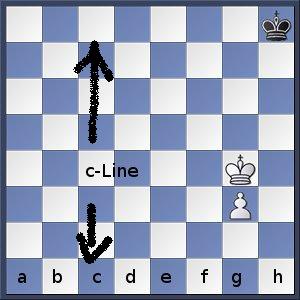
Above you see the lines of the chess board. They go up and down. The c-line is marked. Open lines are usually controlled by the rocks and the queen. But don’t worry about that now, we come to this later.
The Rows (Ranks)
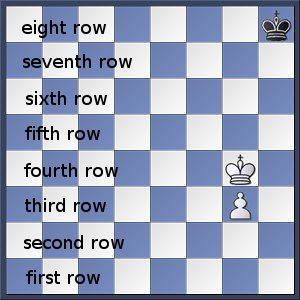
Above you see the rows or ranks. They go from left to right or vice versa.
Just understand the difference between rows (ranks) and lines. That is enough.
The Diagonals
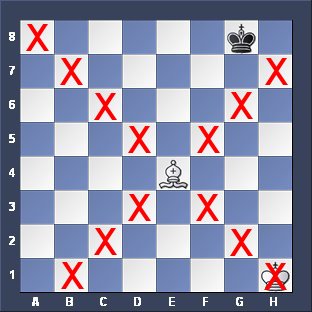
Above you see the diagonals. Bishops like to use them. Place a bishop on an open diagonal if you can. This will increase its power. If you place your bishops on a diagonal that is blocked by pawns then this bishop is not very active.
The Squares
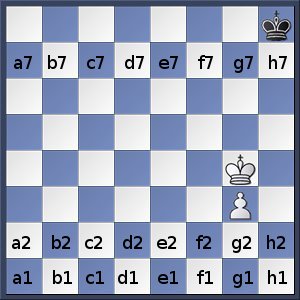
Above you can see that every square on a chess board has a description. I just put the description on some squares.
Look at the square g7. If the black king would move to g7 then you would write on your notation sheet: Kg7
Got it? Pretty easy, isn’t it?
Or if the white king moves to f4, then you write down Kf4.
A chess-board has sixty-four squares.
Learn the following Shortcuts for the pieces:
Rook(R) Knight(N) Bishop(B) Queen(Q) King(K) Pawn(nothing)
When a pawn moves, you just write down the square name:
d7
This means, a pawn has moved to d7!
And now: Castling. Why do you castle? You should castle as fast as possible to protect the king.
Short castling: 0-0 long castling: 0-0-0
In the chess position below players have not castled yet, but can do so now.
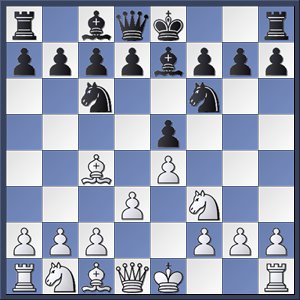
The notation of the upper position is: 1.e4 e5 2.Nf3 Nc6 3.Bc4 Nf6 4.d3 Be7 and now White will castle short. The King moves t w o squares to the right and the Rook is placed directly beside the King. Look down at the next diagramm! Did you understand it? More about chess castle.
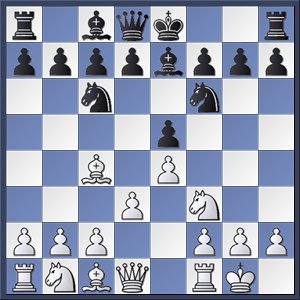
Chess Tips
Just play like White or Black has played here:
1. Get your pieces out as fast as possible!
2. Do castle as fast as possible, if you don’t castle your king will be caught in the middle and gets attacked from all sides and you lose badly.
When we talk about pieces we talk about Bishops, Nights, Rooks and Queens, but not pawns. A pawn is a pawn, right?
Note: Don’t put up the chess-board the wrong way. At the right corner there must be a white square.
The white Queen must be on a white square! The black Queen must be on a black square.
Go to – Basic Chess Rules
Go from – Chess Board – to – Home
 Sick of Losing at Chess? Get Chess Courses from a Grandmaster! HUGE Discount! Click here!
Sick of Losing at Chess? Get Chess Courses from a Grandmaster! HUGE Discount! Click here!Get Chess Course -Beginners Package- from a Grandmaster! Huge Discount!
Privacy Policy Impressum/Disclosure Disclaimer Donate
© 2008- www.Expert-Chess-Strategies.com
